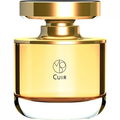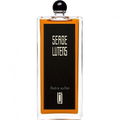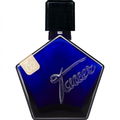06/10/2025

ClaireV
958 Reviews

ClaireV
1
Oud masterpiece presumably now lost to the sands of time
Oudh Osmanthus is both rich and dry, two qualities that are rarely found together these days. After years of puzzling over what makes this perfume tick, I think the secret to its three-dimensional richness lies in its triadic composition of a) the smoky, dried-up husk of a vanilla pod swiped from Mona di Orio Vanille, which contributes a dark, almost liquor-ish background that one might call sweet until you get close enough to see what it is, b), a midsection (borrowed from the brand’s own Musc) of blurred, indistinct floral notes desiccating to a fine white talc, which gives the scent its tinder-box dryness and a slightly soapy, dandified air, and c) a lascivious civet note that twists the florals into a grimy, almost fecal leather note à la Jicky.
Here’s the clever bit – though there is likely some quantity of real osmanthus and oud oil in the composition, their shape is carved out not by the raw materials themselves but by little olfactory nudges laid down by the perfumer herself, like a trail of breadcrumbs in the forest. Hence, the faintly cheesy fruitiness of osmanthus is suggested obliquely by an odd but genius herbal note that smells quite like fresh dill, while the cheesey ferment of oud is brought to life by the leathery civet.
In many ways, Oudh Osmanthus is the analog to my other favorite oud-themed fragrance, Nawab of Oudh (Ormonde Jayne). Both are Western abstractions of an Eastern raw material, rendered in a haute luxe style that elevates them far beyond their source material. But they arrive there from two utterly different directions – Nawab of Oudh via the light cast by crisp linen tablecloths, the brass moldings of a posh London hotel, and freshly-peeled citrus fruits, Oudh Osmanthus via the chartreuse gloom of a velvet-covered room.
Both are eye-wateringly expensive. Adding insult to injury, Oudh Osmanthus was reformulated when the bottles were changed from the wine screw bottles to the golden disc bottle. It still smells great, of course, but its smoky dryness has been toned down and made less confrontational, which has in turn subtracted much from its previously three-dimensional quality. However, if I were forced to choose just two Western oud-themed fragrances to take with me into the apocalypse, it would be Nawab of Oudh and Oudh Osmanthus, and that, for a perennial flip-flopper like me, is said with not even a hint of equivocation.
Here’s the clever bit – though there is likely some quantity of real osmanthus and oud oil in the composition, their shape is carved out not by the raw materials themselves but by little olfactory nudges laid down by the perfumer herself, like a trail of breadcrumbs in the forest. Hence, the faintly cheesy fruitiness of osmanthus is suggested obliquely by an odd but genius herbal note that smells quite like fresh dill, while the cheesey ferment of oud is brought to life by the leathery civet.
In many ways, Oudh Osmanthus is the analog to my other favorite oud-themed fragrance, Nawab of Oudh (Ormonde Jayne). Both are Western abstractions of an Eastern raw material, rendered in a haute luxe style that elevates them far beyond their source material. But they arrive there from two utterly different directions – Nawab of Oudh via the light cast by crisp linen tablecloths, the brass moldings of a posh London hotel, and freshly-peeled citrus fruits, Oudh Osmanthus via the chartreuse gloom of a velvet-covered room.
Both are eye-wateringly expensive. Adding insult to injury, Oudh Osmanthus was reformulated when the bottles were changed from the wine screw bottles to the golden disc bottle. It still smells great, of course, but its smoky dryness has been toned down and made less confrontational, which has in turn subtracted much from its previously three-dimensional quality. However, if I were forced to choose just two Western oud-themed fragrances to take with me into the apocalypse, it would be Nawab of Oudh and Oudh Osmanthus, and that, for a perennial flip-flopper like me, is said with not even a hint of equivocation.





 Top Notes
Top Notes  Philippine elemi
Philippine elemi Calabrian green mandarin orange
Calabrian green mandarin orange Paraguayan petigrain
Paraguayan petigrain Heart Notes
Heart Notes  Chinese osmanthus absolute
Chinese osmanthus absolute Laotian oud
Laotian oud Base Notes
Base Notes  Nagarmotha
Nagarmotha Ambergris
Ambergris Atlas cedar
Atlas cedar Indonesian patchouli
Indonesian patchouli Musk
Musk
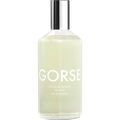





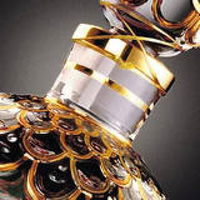

 BoBoChamp
BoBoChamp Emorandeira
Emorandeira




